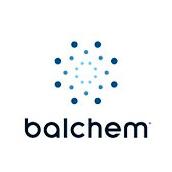New polystyrene milk bottles reduce costs, waste, claims BASF
Published: March 11, 2008
Source : Food Production Daily
A spokesperson at BASF confirmed that the bottle is currently being tested by a European dairy producer and this company will probably introduce the bottles into the market in mid 2008. BASF is confident it will be writing a "first success" story soon thereafter.
BASF's Polystyrene type BX3580 has been specially optimized to produce the milk and yoghurt beverage bottles. It can be processed by injection blow moulding and injection stretch blow moulding.
Blow moulding
Injection blow moulding is used for the production of hollow objects, usually bottles, jars and other containers. A pre-form is made as molten polymer is injected into a mould. The pre-form then moves to a blow station where a bottle mould engages and compressed air inflates the pre-form to the finished shape.
Injection stretch blow moulding is a particular form of injection blow moulding, BASF explained.
During the process of blowing and forming, the bottle is also stretched, enabling the polymer chains to align. This gives the final bottle a higher strength and better gloss.
The company says that polystyrene bottles can be processed on the same machines used for PET (polyethylene terephthalate). Polystyrene pre-forms can be injection-moulded in PET moulds and stretch blow moulding of Polystyrene pre-forms on PET equipment is achievable.
Transfer to existing plants with existing moulds is also possible, said the firm.
Cost benefits
BASF says that the bottles have a number of advantages over PET which translate into advantages for manufacturers.
A Polystyrene bottle has 20 per cent less density than PET, so the same bottle weighs 25g with PET and 20g with Polystyrene. This saves on raw material costs and reduces waste.
"The advantage for packaging manufacturers is that the lower density of polystyrene in comparison to PET can slash material costs by up to 25 per cent," the company claimed.
Also, "unlike PET, the Polystyrene does not have to be pre-dried", which, BASF confirmed, saves on time and energy.
Further, blow moulding is carried out at a lower pressure, so less energy is used. The company says that PET requires 30 - 40 bar for blow moulding bottles, polystyrene only needs 5-7 bar.
BASF also confirms that mechanical, organoleptic (sensory) and microbiological tests on filled bottles have been successful.
The polystyrene milk bottles were showcased at the K2007 exhibition in Germany at the end of October, in conjunction with Styrolux HS70, BASF's new plastic used for the production of shrink film.
Shrink films are wrapped around bottles and other containers, to advertise/illustrate the product and brand. Completely shrink-wrapped packaging provides protection against manipulation such as unauthorized opening.
"Thanks to a novel product design, BASF has now succeeded in markedly increasing the final shrinkage. Styrolus HS70 allows shrinkage values of 70 per cent to 80 per cent, which is a relative improvement of more then 50 per cent. Only this high final shrinkage allows form-fitting sheathing… of bottles having complex geometries or large radius differences".
Jaroslaw Michniuk, head of marketing for standard styrenics at BASF in Ludwigshafen said: "We have filed a patent application for this process and will continue to be involved in this realm".
Source
Food Production DailyRelated topics
Join to be able to comment.
Once you join Engormix, you will be able to participate in all content and forums.
* Required information
Would you like to discuss another topic? Create a new post to engage with experts in the community.
Create a post



.jpg&w=3840&q=75)